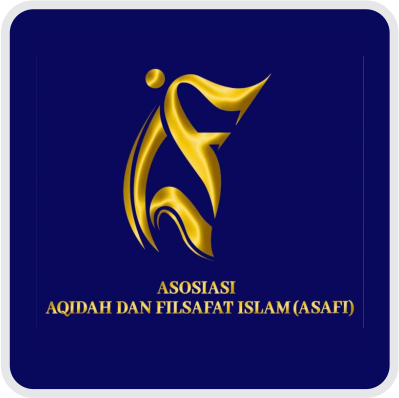God, Nature, and Humanity in the Landscape of Lubuk Hitam Waterfall: A Seyyed Hossein Nasr Eco-Philosophy Perspective
DOI:
https://doi.org/10.30983/itr.v3i1.9734Keywords:
Eco-Philosophy, Seyyed Hossein Nasr, Spiritual Ecology, Environmental Crisis, Lubuk Hitam WaterfallAbstract
This study investigates the relationship between God, nature, and humanity through the landscape of Lubuk Hitam Waterfall in Padang, West Sumatra, using Seyyed Hossein Nasr’s eco-philosophy. Historically, the waterfall was regarded as a sacred manifestation of God in nature, fostering a deep spiritual awareness of ecological balance within the local community. Over time, however, its meaning shifted from a sacred entity to a commercial object, reflecting an anthropocentric orientation and leading to environmental degradation. This research employs a qualitative-descriptive method with a philosophical-phenomenological approach to analyze this transformation. The findings reveal that the ecological crisis surrounding the waterfall mirrors a broader spiritual crisis among the community, particularly those managing the site. Restoring the disrupted relationship between God, nature, and humanity requires spiritual education that emphasizes nature as a manifestation of the Divine. Such an approach not only fosters ecological awareness but also encourages the protection and preservation of natural sites from exploitation.
References
Abduh, M., & Kerwanto. (2023). EDUMULYA : Jurnal Pendidikan Agama Islam INTEGRASI ISLAM DAN SAINS TERHADAP PENDIDIKAN ISLAM DI. EDUMULYA: Jurnal Pendidikan Agama Islam, 01(02), 8–24.
Adow, A. H. E., Safeer, M. M., Mohammed, M. G. H., Alam, M. S., & Sulphey, M. M. (2024). A synthesis of academic literature on eco-spirituality. Global Journal of Environmental Science and Management, 10(4), 2163–2178. https://doi.org/10.22034/gjesm.2024.04.40
Agung Pratama Dharma, & Saldan Manufa. (2024). Seyyed Hossein Nasr: Kritik Islam atas Sekularism Lingkungan. El-Faqih : Jurnal Pemikiran Dan Hukum Islam, 10(1), 53–76. https://doi.org/10.58401/faqih.v10i1.1308
Akhsanudin, M. (2024). Kontekstualisi Pemikiran Sayyed Hossein Nasr Tentang Pendidikan Islam. Afkaruna: International Journal of Islamic Studies (AIJIS), 2(1), 34–47. https://doi.org/10.38073/aijis.v2i1.1853
Aldi, M., Barizi, A., Uin, P., Malik, M., & Malang, I. (2025). Filsafat Ilmu dalam Perspektif Budaya Alam Minangkabau: Membangun Kearifan Lokal untuk Pengembangan Pengetahuan. Teaching and Learning Journal of Mandalika, 6(1), 2828–7126.
Amin, I. (2022). Implementasi Hukum Islam dalam Falsafah Adat Basandi Syarak, Syarak Basandi Kitabullah di Minangkabau. Ijtihad, 38(2), 15–26.
Amril, & Hadi, R. T. (2024). KRISIS IDENTITAS MANUSIA DAN EKOLOGI MODERN DALAM PERSPEKTIF EKO-FILOSOFI SEYYED HOSSEIN NASR, 7(1), 243–262.
Febriani, R., & Murtinigsih, S. (2022). Kosmologi Masyarakat Minangkabau Melalui Kearifan Lokal Rimbo Larangan Untuk Konservasi Lingkungan. Multikultura, 1(4), 698–704. https://doi.org/10.7454/multikultura.v1i4.1122
Hakim, D. L. (2024). Rice Granary in Indonesia. Yogyakarta: Jejak Pustaka.
Ishak, S. N., & Mydin, S. A. H. (2025). Elemen Tawhidik Dalam Perbincangan Ilmu Geometri Karya Tokoh Sains-Falsafah Islam: Analisis Terhadap Kitab al-Hiyal oleh al-Farabi. Journal of Al-Tamaddun, 20(1), 171–188.
Kemal. (2025). wawancara. Padang.
Marganof. (2023). Pengembangan Ekowisata Air Terjun Lubuk Hitam Development of Lubuk Black Waterfall Ecotourism for Environmental Conservation in Bungus Bay , Bungus, XVII(02), 32–46.
Nasr, S. hossein. (2025). What Is Metaphysics? Ruminations on Principal Knowledge and Some of its Applications. Bristol: CT: Equinox Publishing.
Nasr, Sayyed Hossein. (1996). Religion and The Order of Nature. England: Oxford University Press.
Nasr, Seyyed Hossein. (1989). Knowledge and the Sacred. Albany: SUNI Press.
Pratiwi, N., Mustari Mustafa, & Abdullah. (2023). Analisis Perspektif Ismail Raji Al-Faruqi dan Seyyed Hossein Nasr tentang Islam dan Sains. Al-Ubudiyah: Jurnal Pendidikan Dan Studi Islam, 4(1), 69–77. https://doi.org/10.55623/au.v4i1.167
Saraswaty, A. N., & Muljaningsih, S. (2023). Are We Being Rational? Economics Perspectives on Sacred Natural Sites Commodification. Journal of Economic Sociology, 24(5), 175.
Sayem, M. A. (2019). The Eco-Philosophy of Seyyed Hossein Nasr: Spiritual Crisis and
Environmental Degradation. Islamic Studies, 58(2), 271–295.
Sayem, M. A. (2023). Religion and Ecological Crisis: Christian and Muslim Perspectives from John B. Cobb and Seyyed Hossein Nasr. New York: Routledge.
Supriatna, F. S., & Husain, S. (2020). Kontribusi Filsafat Perenial Sayyed Hossein Nasr terhadap Sains Modern. Prosiding Konferensi Integrasi Interkoneksi Islam Dan Sains, 2, 177–183.
Syahidu, A. (2021). Metodologi sains menurut Seyyed Hossein Nashr (Studi atas krisis ekologi). Prosiding Konferensi Integrasi Interkoneksi Islam Dan Sains, 3, 8–14.
Yanti. (2025). Interview. Padang.
Downloads
Published
How to Cite
Issue
Section
Citation Check
License
Copyright (c) 2025 Galang Risky Maulana, Eliza Eka Putri, Putri Rahmadani

This work is licensed under a Creative Commons Attribution-ShareAlike 4.0 International License.


